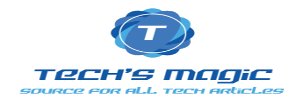Blockchain technology has been gaining popularity in recent years, with many businesses and industries adopting it to enhance their operations. The decentralized nature of blockchain ensures security, transparency, and immutability, making it a preferred choice for various applications. However, not all blockchain platforms are created equal, and Kadena (KDA) stands out as one of the most robust and advanced platforms available. In this article, we will discuss the advantages of Kadena over other blockchain platforms. Visit the official site of Immediate Edge to begin your bitcoin journey.
High Speed and Scalability
One of the most significant advantages of Kadena is its high speed and scalability. Unlike other blockchain platforms that face limitations in the number of transactions they can handle per second, Kadena can handle thousands of transactions per second without compromising its performance. This makes it an ideal platform for businesses that require high-speed transactions, such as financial institutions, e-commerce websites, and supply chain management.
Kadena’s high speed and scalability are made possible by its unique blockchain architecture. It uses a hybrid blockchain that combines both public and private blockchains to achieve optimal performance. The public blockchain ensures transparency and security, while the private blockchain provides scalability and privacy.
Robust Smart Contract Capabilities
Smart contracts are an essential feature of blockchain technology, enabling the exchange of assets without intermediaries. Kadena, a leading blockchain platform, offers robust smart contract capabilities that are superior to other blockchain platforms.
Kadena’s smart contract language, Pact, is designed to be user-friendly and developer-friendly. It is easier to use than other smart contract languages like Solidity, making it more accessible to a wider range of developers. Additionally, Pact is more secure than other smart contract languages, as it is designed to avoid common smart contract vulnerabilities, such as re-entrancy attacks and integer overflows.
Kadena’s smart contract capabilities have numerous applications in various industries. For example, in supply chain management, smart contracts can automate and streamline processes, reducing costs and increasing efficiency. In tokenization of assets, smart contracts can be used to create digital representations of assets, making it easier to buy, sell, and transfer them. In decentralized finance (DeFi), smart contracts can enable various financial services, such as lending, borrowing, and trading, without the need for intermediaries.
Interoperability with Other Blockchains
Interoperability is the ability of different blockchain platforms to communicate and share data with each other. It is an essential feature of blockchain technology, as it allows for the creation of a decentralized ecosystem where various platforms can work together seamlessly. Kadena offers interoperability with other blockchains, making it an ideal platform for businesses and developers looking to create decentralized applications.
Kadena’s interoperability is made possible by its ability to support multiple blockchain protocols, such as Bitcoin and Ethereum. This allows developers to build applications that can interact with different blockchains without the need for intermediaries. Kadena’s interoperability has been used in various applications, such as cross-chain token transfers and decentralized exchanges.
Security and Immutability
Blockchain technology is known for its security and immutability, which are two critical features that set it apart from traditional databases. Kadena, a blockchain platform, is at the forefront of this technology, offering robust security and immutability.
Kadena achieves this by using a hybrid blockchain architecture that combines the best of public and private blockchains. Its public blockchain is transparent and secure, while its private blockchain offers scalability and privacy. This architecture ensures that Kadena can accommodate a wide range of use cases while maintaining high levels of security.
To further enhance its security, Kadena uses advanced cryptographic algorithms like Schnorr signatures. These algorithms provide enhanced privacy and security by ensuring that transactions are validated without revealing sensitive information.
Another key feature of Kadena’s blockchain platform is its consensus mechanism called Chainweb. Unlike other consensus mechanisms like Proof of Work (PoW) and Proof of Stake (PoS), Chainweb is designed to be more secure and resilient. It achieves this by utilizing multiple chains, which are validated by a network of nodes. This ensures that the network is not controlled by a single entity, making it more decentralized and secure.
Conclusion
In conclusion, Kadena (KDA) is a robust and advanced blockchain platform that offers several advantages over other blockchain platforms. Its high speed and scalability, robust smart contract capabilities, interoperability with other blockchains, and security and immutability make it an ideal platform for various applications. As blockchain technology continues to evolve, Kadena is well-positioned to lead the way in creating a more secure, transparent, and decentralized future.

